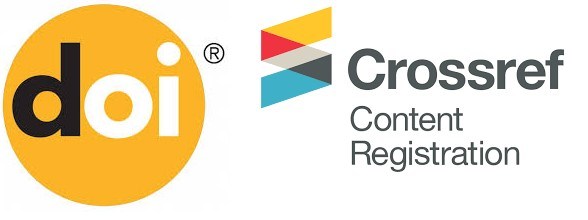Condiciones que activan la argumentación del profesor de matemáticas en clase
DOI:
https://doi.org/10.46219/rechiem.v12i1.11Palabras clave:
Argumentación; discurso; aprendizaje; conocimiento profesional; oportunidades de participación.Resumen
¿Cuáles son las condiciones que activan la argumentación del profesor de Matemáticas durante la discusión de tareas en clase? En este artículo se presentan posibles respuestas a esta pregunta, en el marco de un estudio que pretende comprender la argumentación del profesor de Matemáticas en un ambiente habitual de clase. Para ello se presenta una fundamentación teórica sobre la argumentación en la clase de Matemáticas. Los datos forman parte de un estudio más amplio, los cuales se tomaron durante lecciones de clase de décimo grado (estudiantes de 15 a 16 años), mientras la profesora y sus estudiantes discutían tareas sobre trigonometría. Se discuten fragmentos de episodios de clase, donde se describen indicadores de las condiciones que podrían activar la argumentación del profesor.
Descargas
Citas
Boero, P. (2011). Argumentation and proof: Discussing a “successful” classroom discussion. En M. Pytlak, T. Rowland, y E. Swoboda (Eds.), Actas del 7th Congress of the European Society for Research in Mathematics Education (pp. 120-130). Rzeszów, Polonia: ERME.
Common Core State Standards Initiative. (2010). Common Core State Standards for Mathematics. Recuperado desde http://www.corestandards.org/assets/CCSSI_Math%20Standards.pdf
Conner, A., Singletary, L., Smith, R., Wagner, P., y Francisco, R. (2014). Teacher support for collective argumentation: A framework for examining how teachers support students’ engagement in mathematical activities. Educational Studies in Mathematics, 86(3), 401-429. https://doi.org/10.1007/s10649-014-9532-8
van Eemeren, F., Grassen, B., Krabbe, E., Snoeck Henkemans, F., Verheij, B., y Wagemans, J. (2014). Handbook of Argumentation Theory. Dordrecht, Países Bajos: Springer.
van Eemeren, F. y Grootendorst, R. (2011). Una Tteoría Sistemática de la Argumentación. La Perspectiva Pragmadialéctica. Buenos Aires, Argentina: Editorial Biblos.
Knipping, C., y Reid, D. (2015). Reconstructing argumentation structures: A perspective on proving processes in secondary mathematics classroom interactions. En A. Bikner-Ahsbahs, C. Knipping, y N. Presmeg (Eds.), Approaches to qualitative research in mathematics education (pp. 75-101). New York: Springer.
Krummheuer, G. (2011). Representation of the notion ‘‘learning-as-participation’’ in everyday situations of mathematics classes. ZDM Mathematics Education, 43(1), 81-90. https://doi.org/10.1007/s11858-010-0294-1
Metaxas, N. (2015). Mathematical argumentation of students participating in a mathematics–information technology project. International Research in Education, 3(1), 82-92. https://doi.org/10.5296/ire.v3i1.6767
Metaxas, N., Potari, D., y Zachariades, T. (2016). Analysis of a teacher’s pedagogical arguments using Toulmin’s model and argumentation schemes. Educational Studies in Mathematics, 93(3), 383-397. https://doi.org/10.1007/s10649-016-9701-z
Pino-Fan, L., Assis, A., y Castro, W. (2015). Towards a methodology for the characterization of teachers' didactic-mathematical knowledge. EURASIA Journal of Mathematics, Science & Technology Education, 11(6), 1429-1456. https://doi.org/10.12973/eurasia.2015.1403a
Prusak, N., Hershkowitz, R., y Schwarz, B. (2012). From visual reasoning to logical necessity through argumentative design. Educational Studies in Mathematics, 79(1), 19-40. https://doi.org/10.1007/s10649-011-9335-0
Santibáñez, C. (2015). Función, funcionalismo y funcionalización en la teoría pragma-dialéctica de la argumentación. Universum, 30(1), 233-252. https://dx.doi.org/10.4067/S0718-23762015000100014
Schoen, R. C., LaVenia, M., y Ozsoy, G. (2019). Teacher beliefs about mathematics teaching and learning: Identifying and clarifying three constructs. Cogent Education, 6(1), 1-29. https://doi.org/10.1080/2331186X.2019.1599488
Selling, S., Garcia, N., y Ball, D. (2016). What does it take to Develop Assessments of Mathematical Knowledge for Teaching?: Unpacking the Mathematical Work of Teaching. The Mathematics Enthusiast, 13(1), 35-51.
Sfard, A. (2008). Thinking as communicating. Human development, the growth of discourses, and mathematizing. Cambridge, Reino Unido: Cambridge University Press.
Solar, H. (2018). Implicaciones de la argumentación en el aula de matemáticas. Revista Colombiana de Educación, 74, 155-176. https://doi.org/10.17227/rce.num74-6902
Solar, H., y Deulofeu, J. (2016). Condiciones para promover el desarrollo de la competencia de argumentación en el aula de matemáticas. Bolema, 30(56), 1092-1112. http://dx.doi.org//10.1590/1980-4415v30n56a13
Staples, M., y Newton, J. (2016). Teachers' Contextualization of Argumentation in the Mathematics Classroom. Theory into Practice, 55(4), 294-301. https://doi.org/10.1080/00405841.2016.1208070
Stylianides, A., Bieda, K., y Morselli, F. (2016). Proof and Argumentation in Mathematics Education Research. En Á. Gutiérrez, G. Leder, y P. Boero (Eds.), The Second Handbook of Research on the Psychology of Mathematics Education (pp. 315-351). Rotterdam, Países Bajos: Sense Publishers.
Toro, J. y Castro, W. (2019a). Features of mathematics’ teacher argumentation in classroom. En U. T. Jankvist, M. van den Heuvel-Panhuizen, y M. Veldhuis (Eds.), Proceedings of the Eleventh Congress of the European Society for Research in Mathematics Education (pp. 336-337). Utrecht, the Netherlands: Freudenthal Group & Freudenthal Institute, Utrecht University and ERME.
Toro, J., y Castro, W. (2019b). Purposes of mathematics teacher argumentation during the discussion of tasks in the classroom. En M. Graven, H. Venkat, A. Essien, y P. Valero (Eds.), Proceedings of the 43rd Conference of the International Group for the Psychology of Mathematics Education (Vol. 4, pp. 458-477). Pretoria, Sudáfrica: PME.
Toulmin, S. (2007). Los usos de la argumentación. Barcelona, España: Ediciones Península.











